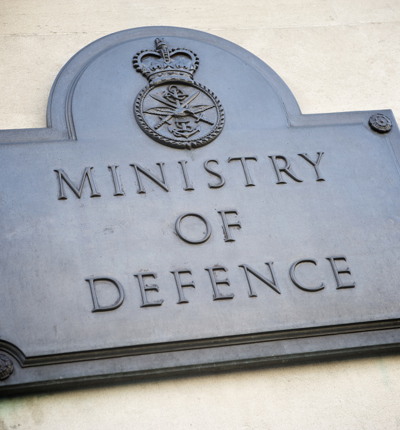
Ministry of Defence blacklists investigative journalist group Declassified UK
Lawyers are seeking urgent clarification from the Ministry of Defence about an apparent policy to refuse to respond to enquiries from leading investigative journalist group Declassified UK.
Posted on 08 September 2020
Declassified UK is an investigative journalism organisation which provides in-depth analysis and exclusive news on UK foreign policy, its military, intelligence agencies and most powerful corporations.
However the MoD press office has refused to provide information or comment in response to recent enquiries by Declassified. Now Leigh Day lawyers have written to the MoD on the journalists’ behalf to seek urgent clarification about what appears to be a blacklisting policy.
On 25 August 2020, Declassified approached the MoD press team seeking comment on an emerging story that a serving soldier had been arrested following a protest regarding the UK’s involvement in Yemen.
The MoD initially said it would provide comment in due course but changed tack after a press officer asked Declassified “what sort of angle have you taken on the war in Yemen?”. The journalist was then told: “We no longer deal with your publication”. The MoD provided comment to other media outlets who went on to publish articles on the same story.
Despite repeated requests, the MoD has failed to provide Declassified with any details of when or why it has adopted the policy. The effect has been to exclude Declassified from the standard process of engagement between media outlets and the MoD, effectively blacklisting Declassified as an organisation to which the MoD will provide comment or responses in relation to journalistic enquiries.
Leigh Day’s urgent letter notes that such a policy would be a serious breach of Article 10 ECHR, including the right to hold opinions and to receive and impart information and ideas without interference by public authority.
The actions of the MoD press team may also contravene duties of impartiality and neutrality set out in the Government Communication Service Propriety Guidance as well as the Civil Service Code.
The letter asks the MoD to explain the full content of the policy and the basis and reasons for it. Declassified will consider legal action if the response is not satisfactory.
The letter comes after a level 2 press freedom alert was issued on the matter by the Council of Europe on Friday.
The Society of Editors and the International Press Institute have also raised concerns with the MoD.
The press freedom alert requires the UK government to provide a formal response to why it has blacklisted Declassified. Despite this, the MoD has not provided Declassified with any further information since telling the group that it would no longer engage with it on 25 August.
Mark Curtis, Editor of Declassified, said:
“We think our investigative work has been ground-breaking in informing the public about numerous government policies which other media have not covered. It raises serious questions if it is for this that the MoD is blacklisting Declassified.
“Ministers speak a lot about freedom of the media and the importance of holding governments to account. But our ability to do precisely this is being halted by a public body which seems to believe it can pick and choose to whom it provides information. This is unacceptable and a deterrent to critical journalism.”
Tom Short (solicitor) and Tessa Gregory (Partner) from Leigh Day’s Human Rights team are instructed by Declassified.
Tom Short said:
“It is a matter of great concern that the MoD appears to seek to silence critical public-interest journalism by blacklisting our client and excluding them from the normal comment and response process that all other journalists continue to be able to use.
“Our client’s concern that this policy stifles open journalism in retaliation for Declassified’s coverage of the UK’s role in the war in Yemen is compounded by the unfair process by which the MoD has implemented it.
“The MoD has refused to explain the basis for the blacklisting, gave no advance notice of the policy, and has denied our client any opportunity in advance to make representations in opposition to it.”

